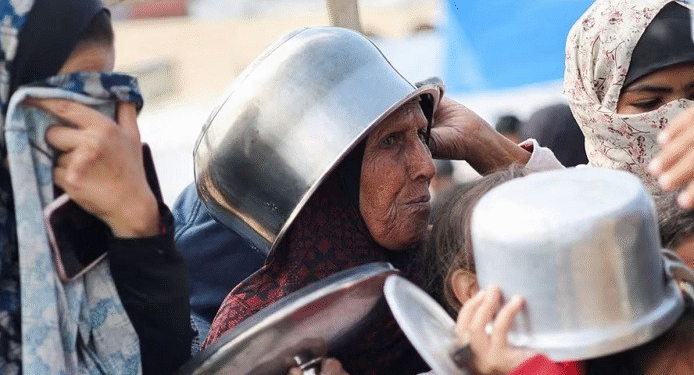JERUSALEM/ NEW DELHI — A convoy of 107 aid trucks carrying essential humanitarian supplies was transferred into the Gaza Strip on Thursday, according to a statement released by the Israeli military. The shipment, coordinated with the United Nations and various international aid organizations, included flour, food items, medical equipment, and pharmaceutical drugs aimed at alleviating the growing humanitarian crisis in the besieged enclave.
The Israeli Defense Forces (IDF) confirmed the entry of the aid trucks via one of the designated crossings, though it did not specify whether the Kerem Shalom or another entry point was used. The transfer comes amid mounting international pressure on Israel to facilitate the delivery of humanitarian assistance as conditions in Gaza continue to deteriorate due to ongoing hostilities and restricted access.
“The coordination and entry of 107 humanitarian aid trucks were carried out today as part of our continued efforts to support the civilian population in Gaza,” the IDF stated. “We are working with international partners to ensure that aid reaches those in need while maintaining necessary security protocols.”
The United Nations Office for the Coordination of Humanitarian Affairs (OCHA) confirmed the delivery and emphasized the urgent need for sustained and unimpeded humanitarian access. “While the arrival of over 100 trucks is a welcome development, it represents only a fraction of what is required daily to meet the needs of Gaza’s 2.3 million residents,” said Andrea De Domenico, Head of OCHA’s office in the Occupied Palestinian Territory.
According to humanitarian groups, the healthcare system in Gaza is on the verge of collapse, with critical shortages of medicine, electricity, and clean water. Hospitals are overwhelmed by the influx of casualties and are struggling to provide even basic care.
Thursday’s aid transfer comes in the backdrop of renewed violence and diplomatic efforts to de-escalate tensions. The UN and other international actors have repeatedly called for a humanitarian ceasefire to allow the safe distribution of aid and medical supplies.
“This is a life-saving mission,” said a spokesperson for the World Health Organization (WHO). “Every truck that enters Gaza carries hope for survival, but what is truly needed is a sustained humanitarian corridor.”
It remains unclear how long the increased flow of aid will continue or whether future shipments will face delays or restrictions. The situation on the ground remains volatile, with access often dependent on political and security developments.
As the humanitarian crisis deepens, Thursday’s aid delivery serves as a critical—if insufficient—lifeline to the people of Gaza. The international community continues to urge all parties to prioritize civilian needs and allow humanitarian operations to proceed unhindered.
– Dr. Shahid Siddiqui; Follow via X @shahidsiddiqui



















